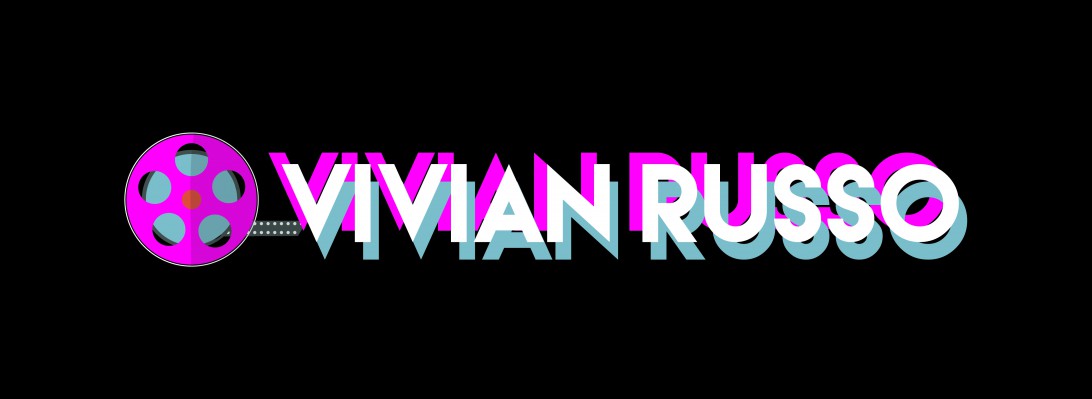
In a world flooded by Comic Book adaptations, X-Men brings realism to the table. Especially the most recent trilogy, helmed by Bryan Singer. They tap into our emotions and make them relatable. X-Men: Apocalypse is the final turn of the screw to round up story-lines that were first opened in First Class. Of the entire Marvel Cinematic Universe (MCU), X-Men is its crowning jewel. This trilogy’s merit lies in exploring the origin of Professor X and Magneto as complex characters, before they became legend.
X-Men: Apocalypse takes place in 1983, 10 years after Days of Future Past (DOFP), when the ancient mutant En Sabah Nur awakens and wants to cleanse human race and take over the world with the help of his Four Horsemen (of the Apocalypse). The X-Men try to stop him and reclaim some of its own members from the dark side. The cast from the previous two films returns, including James McAvoy as Charles Xavier (Professor X), Michael Fassbender as Erik Lehnsherr (Magneto), Jennifer Lawrence as Raven Darkholme (Mystique), Nicholas Hoult as Hank McCoy (Beast), Rose Byrne as Moira McTaggert, Evan Peters as Peter Maximoff (Quicksilver). New additions include Oscar Isaac as Apocalypse, Tye Sheridan as Scott Summers (Cyclops), Sophie Turner as Jean Grey, Alexandra Ship as Ororo Munroe (Storm), and Olivia Munn as Psylocke.
As the original masterpiece in this series, First Class is the best film ever made about mutants. It’s enjoyable to people that aren’t familiar with the story-line. There’s great performances, directing and script; it goes beyond a superhero film. Another bonus is revisiting world history and having revolve the plot around milestones. First it was the Cuban missile crisis in 1962, then Kennedy’s assassination and the Vietnam War in 1973. Apocalypse was no exception. The 10-year jump is another very nice asset, gives dynamism to this little universe. DOFP juggles the time-jump very well, a feat hard to achieve that always appeals to people. For history junkies, it’s very interesting that they depict the era so well. Every set, costume and hairdo reflects the time-frame accurately. Fashion is more important than you’d think to make a film believable. Apocalypse succeeds.
All the details in character treatment make superheroes relatable. As lead characters they all have their baggage, upbringing and weird quirks that make them who they are. It’s an archetype rather than a stereotype, similar to real life. There’s no good and bad guys. Both sides of the spectrum have light and dark inside, what matters at a certain point is the side they choose to act on. Contrasting X-Men with other superheroes, it’s a more plausible scenario to have a human with a genetic mutation than an alien or a demigod. When empathy isn’t so far-fetched there’s a deeper connection between fanbase and movie characters.
The X-Men are a dysfunctional family that caters to all tastes. Professor X has his characteristic wisdom and serenity, thanks to the amazing McAvoy. He’s the ying to Magneto’s yang. Fassbender has a great chemistry with McAvoy. There’s always a new creative peak of this complicated relationship that is so captivating to explore. Mystique has more relevance as a leader to the younger generation; she can guide with her past experiences and has matured. Her rebellious side is more controlled now. With JLaw giving life to the character, rising up to this new perspective wasn’t a challenge for her at all, the screen loves her and so does the audience. Quicksilver add the sarcastic humor, more specifically with his comments and funny first appearance with an interesting choice of music as backdrop. His smart mouth lighten the mood between Magneto and Mystique’s intensity. The Wolverine cameo lived up to fans’ expectations. Hugh Jackman is at the heart of X-Men and continues to do a fabulous job as the icon.
The main paradigm of this trilogy is balancing opposing views, the peaceful Xavier and hot-headed Magneto. Sometimes they meet in the middle and are friend. What is sure is that they are never direct enemies and have more in common than appears. There’s epic lines that will make you cringe and think. It reflects an emphasis in dialogue and rationalization to improve the world, exemplified in one of the leads, Professor X.
In the creative team there’s Bryan Singer as the director, his credits include The Usual Suspects (1995), X-Men (2000), X2 (2003), Superman Returns (2006) and Valkyrie (2008). Produced by Singer, Lauren Shuler Donner, Simon Kinberg & Hutch Parker. With a screenplay by Simon Kinberg from a story conceived by Singer, Kinberg, Michael Dougherty & Dan Harris. The team has all worked under Singer’s direction before, including Days of Future Past. Music is by John Ottman and Cinematography by Newton Thomas Sigel, both already initiated in Singer’s posse.
When a film balances perfectly action and history, it keeps you at the edge of your seat. The cutting edge technology we have today is put to a good use in the movie making business, without forgetting its heart. It shows the nuances in humanity beyond fairytales, the way relationships are in reality. X-Men: Apocalypse is a 4.5/5, only slightly behind the original one, First Class (5/5), and its immediate predecessor, DOFP (4.5/5). All of them are realistic within the genre without lacking emotion or rawness.

En un mundo inundado por adaptaciones de Cómics, X-Men aporta realismo a la mezcla. Especialmente la trología más reciente, cuya batuta lleva Bryan Singer. Apelan a nuestras emociones y los hacen empáticos. X-Men: Apocalípsis es la rueda de tuerca final para atar los cabos que se abrieron por primera vez en Primera Generación. De todo el Universo Cinemático de Marvel (UCM), X-Men es la joya de la corona. Los méritos de esta trilogía se deben a que se exploran los orígenes del Profesor X y Magneto como personajes complejos, antes que se convirtieran en leyenda.
X-Men: Apocalípsis toma lugar en 1983, 10 años después de Días del Futuro Pasado (DDFP), cuando el mutante ancestral En Sabah Nur se despierta y quiere limpiar la raza humana y controlar el mundo con la ayuda de sus Cuatro Jinetes (del Apocalípsis). Los X-Men tratan de frustrar sus planes y reclamar algunos de sus miembros perdidos del lado oscuro. El elenco de los dos largometrajes anteriores regresa, incluyendo a James McAvoy como Charles Xavier (Professor X), Michael Fassbender como Erik Lehnsherr (Magneto), Jennifer Lawrence como Raven Darkholme (Mystique), Nicholas Hoult como Hank McCoy (Beast), Rose Byrne como Moira McTaggert, Evan Peters como Peter Maximoff (Quicksilver). Nuevas adiciones incluyen a Oscar Isaac como Apocalípsis, Tye Sheridan como Scott Summers (Cyclops), Sophie Turner como Jean Grey, Alexandra Ship como Ororo Munroe (Storm), y Olivia Munn como Psylocke.
Siendo la obra maestra original, Primera Generación es la mejor de todas las películas sobre mutantes. Se disfruta hasta si no estás familiarizado con la trama. Hay grandes interpretaciones, dirección y guion, va más allá de la ípica película de superhéroes. Un añadido es revisitar la historia mundial e insertar la dramaturgia alrededor de hitos pasados. Primero lo hizo con las Crisis de los Misiles en Cuba en 1962, luego con el asesinato de Kennedy y la Guerra de Vietnam es 1973, Apocalípsis no fue la excepción. Los saltos de 10 años juegan a favor de la trilogía, dándole dinamismo su pequeño universo. DDFP añade a la mezcla los viajes en el tiempo, esto es un elemento difícil de manejar y que siempre atrae audiencias. Para los apasionados de la historia, es interesente que retratan la época tan bien. Cada locación, vestimenta y peinado es apropiada. La moda es más importante de lo que parece para que un filme sea creíble. Apocalípsis pasa la prueba con éxito.
Todos los detalles en el tratamiento de personajes los hacen empáticos y humanos. Como arquetipos clave tienen su historia, antecedentes y particularidades que hacen que resalten a su manera. Van más allá del estereotipo y se asemejan a la vida real, no hay buenos y malos. Ambos opuestos llevan tanto oscuridad como luz adentro, lo que importa en cierto punto es el lado que guía sus acciones. Al contrastar X-men con otros superhéroes, es mucho más creíble ser humano con una mutación genética que un extraterrestre o deidad. Cuando la empatía es más alcanzable hay una conección profunda entre fanáticos y personajes cinematográficos.
Los X-Me son una familia disfuncional que tiene para todos los gustos. Professor X exhibe su característica serenidad y sabiduría, gracias al asombroso McAvoy. Es el ying del yang de Magneto. Fassbender tiene química en pantalla con McAvoy. Siempre hay nuevas cimas dramáticas que alcanzar en esta relación complicada que resulta tan interesante de explorar. Mystique cobra relevacia como líder de la generación más joven, puede guíar gracias a sus experiencias. Ha madurado y su rebeldía está más calmada. Siendo que la actriz detrás de esta superheroína es JLaw, resaltar en pantalla no es ningún reto para ella; la cámara la adora, al igual que el público. Quicksilver añade el toque sarcástico, específicamente con sus comentarios y cómica primera aparición con una interesante selección de música de fondo. Sus intervenciones listas aligeran la tensión que genera la intensidad de Magneto y Mystique. El cameo de Wolverine cumplió con las expectativas. Hugh Jackman está en el corazón de X-Men y sigue arrasando como el ícono de Marvel.
El paradigma principal en esta trilofía es balancear puntos de vista opuestos. Por un lado el pacífico Xavier, y por el otro el reactivo Magneto. A veces se encuentran en el medio y son amigos. Lo que nunca son definitivamente es enemigos directos. Tienen más en común de lo que aparentan. Los parlamentos épicos te harán temblar y pensar. Refleja el énfasis en el diálogo que busca transmitir la película, y cómo racionalizando mejoraremos el mundo, ejemplificado en el Profesor X.
En el equipo creativo está Bryan Singer como director, sus créditos incluyen Los sospechosos habituales (1995), X-Men (2000), X2 (2003), Superman Regresa (2006) y Operación Valkiria (2008). Producida por Singer, Lauren Shuler Donner, Simon Kinberg & Hutch Parker. Tiene un guion de Simon Kinberg e historia concebida por Singer, Kinberg, Michael Dougherty & Dan Harris. Todo el equipo tiene experiencia trabajando bajo las directrices de Singer, incluyendo en DDFP. La música es de John Ottman y Cinematografía de Newton Thomas Sigel, ambos iniciados en el pequeño grupo de Singer.
Cuando una película balancea acción e historia, te mantiene al borde de tu asiento. La tecnología de punta actual se utiliza con un buen propósito en el negocio del cine, sin olvidar el corazón. X-Men: Apocalípsis es un 4.5/5, sólo ligeramente detrás de la original Primera Generación (5/5), y su predecesor inmediato, DDFP (4.5/5). Todas ellas son realistas para el género en que se encuentrar, sin carecer de emoción o crudeza.
Vivian Russo


 Since the early 2000s Hollywood’s been making X-Men movies, starting with the three main ones, from the Wolverine universe and the epic prequel First Class. Days of Future Past is as good of a movie as any other, don’t let the genre fool you. Even though people usually label action flicks as shallow, this one is anything but. The best film of the X-Men universe is First Class, but Days of Future Past is very close.
Since the early 2000s Hollywood’s been making X-Men movies, starting with the three main ones, from the Wolverine universe and the epic prequel First Class. Days of Future Past is as good of a movie as any other, don’t let the genre fool you. Even though people usually label action flicks as shallow, this one is anything but. The best film of the X-Men universe is First Class, but Days of Future Past is very close.